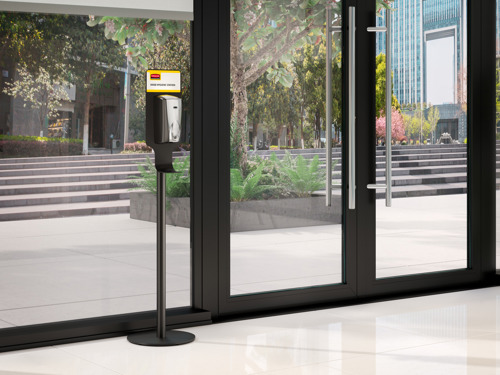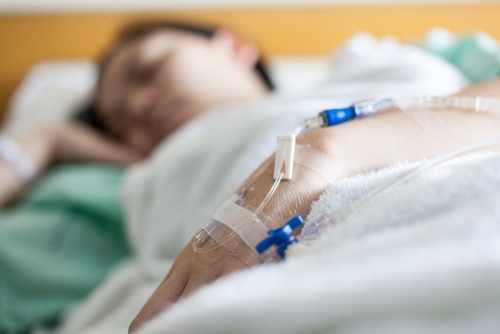
There are numerous reasons why it is critical to keep a daycare/ childcare centre as clean as possible. As we all know, children and their caregivers in childcare centres are often in confined spaces together therefore infectious illnesses can easily spread. Childcare centres are never going to be germ-free, but as per below, there are guidelines that can be followed to minimise and prevent staff and children from falling ill.
Keeping the facility hygienic means the prevention of germs and illnesses, helping both caretakers and children to remain healthy. In addition to this, a clean facility makes a positive impression on parents, allowing them to have confidence in your abilities to care for their children. As a result, you'll be able to establish a more positive reputation in the childcare sector.
Here are some simple cleaning guidelines for childcare centres to help you keep your childcare facility clean, secure and enjoyable for young children.
9 cleaning guidelines for childcare centres
1. Encourage regular handwashing
In order to avoid the transmission of germs and illnesses, children must be taught to wash their hands regularly. It's important that both teachers and students wash their hands after going to the bathroom; before and after eating; after sneezing, coughing or blowing a runny nose; and before and after playing games or using shared equipment. Using a touch-free dispensers can also assist reduce risk as multiple users need not touch the soap or sanitiser dispensers.
2. Vacuum and mop frequently throughout the day
When it comes to bacteria, illnesses and infections, the floor is frequently the worst culprit. It has been determined by scientists that 90% of airborne microorganisms are due to resuspension from floors and other surfaces*. Young children spend a large part of their time playing on the ground, so vacuuming and mopping should be done frequently throughout the day. This aids in the removal of dirt and dust that may irritate young children, especially those with allergies such as asthma. Other benefits of regular vacuuming include improved indoor air quality, the prevention of mould growth and the elimination of infestations such as dust mites. And lastly, harmful microbes can be removed from floor surfaces, keeping staff and children safe.
Quick spot mopping can also be done with the right equipment such as spray mops.
3. Implement colour-coding for cleaning
Colour-coding is the norm in the aged care industry. A childcare facility is similar in regard to risks associated with a large number of people in the same place for a prolonged period. Implementing a colour coded cleaning system means spreading germs from one area to another is reduced.
Blue is for general areas, Red for bathroom areas, and green for food areas.
4. Clean toys regularly
Plastic toys are required to be washed and sterilised at least once a day in many childcare centres. As toys are one of the most common ways for germs to spread, if a child puts a toy in his or her mouth, it should be put to one side until it can be thoroughly cleaned and sanitised.
Stuffed toys are a harder to clean and regular washing schedules of these should be set. Alternatively, deep-freezing them in a plastic bag may also be an option. Doing this for about 4-5 hours will kill off any allergens, dust mites and germs.
Not only does cleaning all toys prevent the transmission of germs and allergies, but it will lead to fewer sick days for your children and staff.
5. Choose safe cleaning products
When it comes to choosing cleaning products, the need to be cautious is essential. Chemical exposure is extremely dangerous for young children, so examine all labels to prevent exposing them to harmful compounds. The safety data sheets of all chemicals should be kept in a folder that is known to all staff in case of emergencies. Cleaning chemicals and disinfection or sanitising agents should be an authorised product by the facility safety team.
The use of microfibre cloths and mops is also recommended. Since the fibres of these cloths and mops are so small, they pick up 99.9% of all microbes on surfaces.
6. Ensure the correct preparation of food
Make sure any surfaces or appliances used to prepare and are clean before use. All food items need to be stored at the right temperature and any spoiled produce should be thrown out immediately.
It's important to discourage children from sharing meals and drinks. Not only does this spread germs, but a child with a nut allergy, for example, could inadvertently eat something they shouldn't. Finally, make sure no food preparation takes place in close proximity to diaper changing areas.
7. Have a cleaning schedule and dedicated cleaning storage room at the childcare centre
In order to prevent or reduce the transmission of bacteria, it is critical to maintain a sanitary environment. There should be a cleaning schedule that specifies what has to be cleaned, how often it should be cleaned and who is responsible for it. Storing everything on a cleaning cart can make finding products simpler and faster.
It's important that staff and cleaners have access to safe and adequate cleaning detergents,microfibre cloths and mopping systems, but it's essential that all products are kept out of reach of children. Storing cleaning items in cleaning cart that can be locked is a wise precaution.
8. Clean nappy-changing areas
The use of diluted bleach solutions to clean nappy changing areas is known to be a proven method however all childcare centres have approved methods by internal safety teams. Preventing the transmission of germs also requires basic cleanliness from staff, such as hand washing after a nappy change, and the use of a suitable sealed bin and disposing of used nappies safely.
9. Staff and children who are unwell should go home
Ensuring no sick staff and children come into the childcare facility may sound like an obvious risk, but emphasis on its importance and close enforcement is essential. If a member of staff shows symptoms of an illness that could easily spread, such as influenza or diarrhoea, they should go home as soon as possible.
The importance of following cleaning guidelines for childcare centres
Since children and their caregivers are often in confined spaces together, infectious illnesses can easily spread. Childcare centres are never going to be germ-free, but as seen above, there are guidelines that can be followed to minimise and prevent staff and children from falling ill.
Contact Rubbermaid Commercial Products today
Rubbermaid Commercial Products has been providing reliable and creative cleaning, hygiene and waste management solutions to businesses of all sizes since 1968. Our solutions are built to last.
If you have an enquiry, make sure to contact us so we can assist. You can also get a free sample of the Hygen launderable or disposable microfibre cloth to try our industry leading solutions.